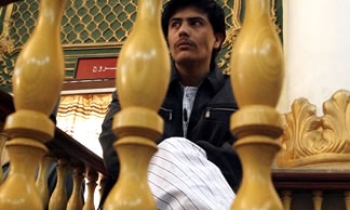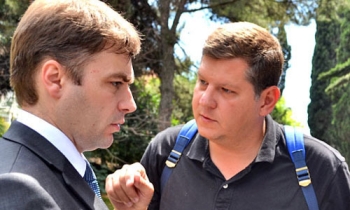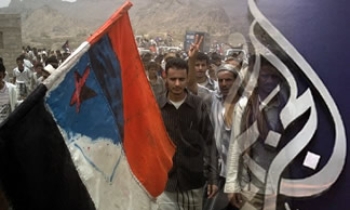BAGHDAD (AP) — Bilal Hussein’s career as a photojournalist nearly ended soon after it began. Hussein, who had been working for The Associated Press for about three months, volunteered to stay in his native Fallujah as U.S. forces prepared to assault the city to drive out Sunni religious extremists.
It was a decision not taken lightly. Once known as the “city of mosques,” Fallujah had become the symbol of Sunni Arab resistance to the Americans and their Iraqi allies.
Fallujah had become a place where car bombs were rigged, terror attacks planned, and kidnap victims taken for their final terrifying days before they were beheaded before video cameras.
As fighting escalated in November 2004, Hussein produced images from inside the city — including a picture of insurgents firing on coalition forces that was to win him a share of a Pulitzer Prize.
But he was unprepared for the fury of the American attack and the bitter resistance mounted by al-Qaida in Iraq and its Sunni allies. As fighting raged, he slipped out of the city and made his way to the AP office in Baghdad, 45 miles to the east.
“Destruction was everywhere. I saw people lying dead in the streets, wounded were bleeding and there was no one to come and help them,” he said at the time. “There was no medicine, water, no electricity nor food for days.”
Hussein, who is unmarried, had decided to stay in Fallujah because it was home and because he considered it an opportunity to make a name for himself in his new career as a photojournalist.
Like many Iraqis of his generation, opportunities were limited, especially after the collapse of Saddam Hussein’s regime in the 2003 American-led invasion.
He was born in Fallujah in 1971 — one of 14 children — to a family that is part of the Dulaim tribe, the largest in Anbar province.
His father, who remarried after his first wife died, owned a shop that sold farm equipment and leather goods. Until his death in 1981, the elder Hussein was a chief of a branch of the Dulaim tribe.
Hussein’s family also owned a small farm where they grew fruits and vegetables. One of his brothers managed the farm and another distributed produce to local stores.
Hussein became interested in photography as a boy and learned to develop photos in a dark room which his uncle had set up in his home.
But photography offered little chance for a career in Fallujah, a Sunni industrial and agricultural city of about 350,000 people.
Instead of photography, he studied mechanics at the Technical Institute in Fallujah and worked variously in a mobile phone shop, grocery and an auto parts shop — jobs which provided a bit of income but few prospects for a long-term career.
As Fallujah was becoming a center of anti-American resistance, journalists would visit the city regularly in 2003 and early 2004. They would seek out residents who could help them understand the dynamics of a city falling under the control of Sunni religious extremists.
Hussein’s cheerful manner, his intelligence and his knowledge of the city, where his family had lived for decades, made him a sought-after figure.
When Fallujah became too dangerous even for many Iraqis, Hussein and other locals were hired as photographers and tipsters.
“Hussein leaped at the opportunity to work for the AP,” lawyer and former federal prosecutor Paul Gardephe wrote in an AP investigative report.
“In my dealings with Hussein, I was struck by his relatively sophisticated understanding of the role of a photojournalist — particularly in a war setting,” wrote Gardephe, who interviewed Hussein in custody for more than 40 hours last March along with a wide range of co-workers, relatives and friends.
Bitter fighting in 2004, however, left Fallujah in ruins. Tens of thousands of inhabitants fled. U.S. and Iraqi forces imposed strict security. Extremists sought other towns and cities as new bases of operations, including Ramadi, the capital of Anbar.
With security deteriorating in Ramadi, the AP asked Hussein to go there to report on the conflict. It was in Ramadi that he was arrested on April 12, 2006.









